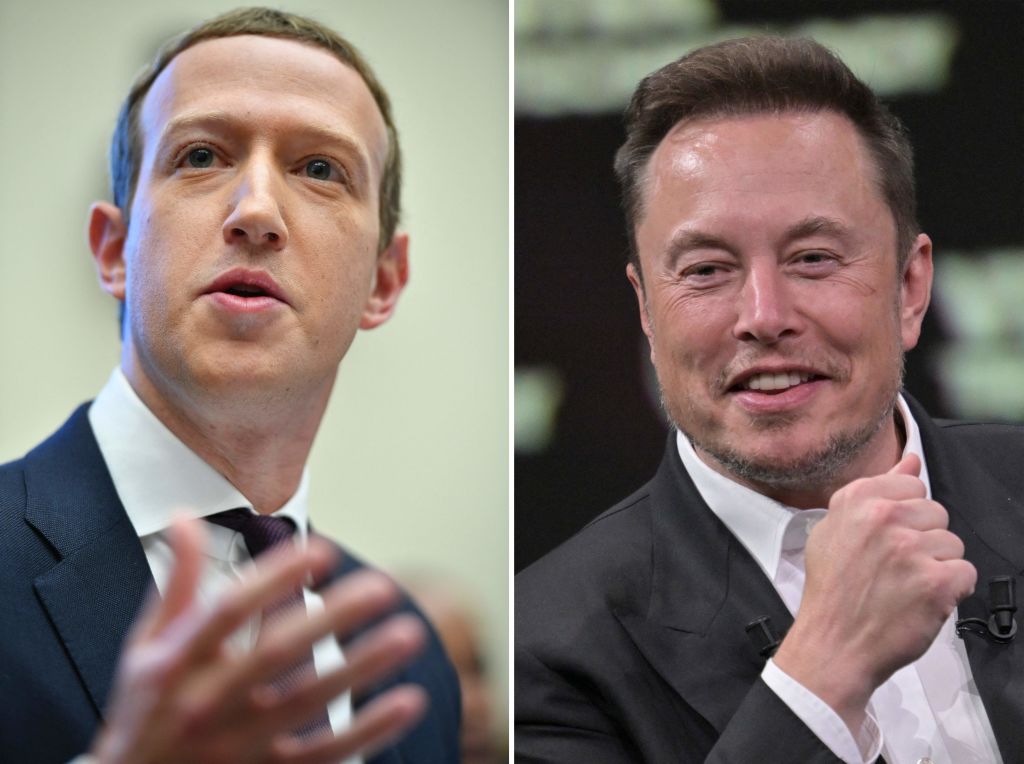
This article is part of The D.C. Brief, TIME’s politics newsletter. Sign up here to get stories like this sent to your inbox.
Earlier in my career, a wise editor had a hard-and-fast rule against using violent language to jazz up political copy: don’t do it.
No mentions of candidates administering body blows, placing rivals in the crosshairs, or any such language. That was the inviolable edict AP Political Editor Donna Cassata circulated in 2006 to her team which included me, an editorial assistant. As Americans were risking and sacrificing their lives on actual battlefields, attempts to liken the civil practice of democracy to combat was unseemly.
This is a way of explaining why I can’t believe I’m writing this column.
In three independent but not entirely unrelated circus rings, a pair of chest-puffing rivals is moving well beyond the typical name calling and drive-by dings. Two of those duos are mulling open physical violence against each other masked as sport; the remaining match-up—the all-female one—is more civilized only in comparison.
The first one could be viewed as not overtly political, except both players have a lot of power over our political speech. Tech billionaires—and TIME Persons of the Year—Mark Zuckerberg and Elon Musk are poised to enter a cage match amid their companies’ fight for social media dominance. It’s a contest that, frankly, no one wins. It’s an absolutely bananas moment in tech-bro culture that could see two of the most socially awkward people running our lives in the background clash in a way no one asked for. Meta and Twitter are their purview, and yet these billionaires are going to test if their fortunes can summon physical might, while Silicon Valley and the world gawks.
Independently, Sen. Markwayne Mullin says he will put his Oklahoma Republican fierceness on the line against Teamster chief Sean O’Brien. Mullin, a former CEO who is heralded as an undefeated Mixed-Martial-Arts champ through all three contests he’s joined, has been a braggart on social media about it after the union boss called him a fraud in a tweet. Oklahoma is just an off-center place that this wildcat rogueness could be rewarded.
In the third arena, two seemingly like-minded Republican lawmakers, both of whom have an unrelenting fetishization of firearms, have seen their relationship devolve only into an ugly war of words, at least for now. Reps. Marjorie Taylor Greene and Lauren Boebert have tried to downplay the fact that they were calling each other slurs from the House floor, Fox News studios, and in corridors. It culminated in a clash that no writers’ room in Hollywood would have dared to suggest. For all of their problems, Speakers Paul Ryan and Nancy Pelosi never used “little bitch” to describe each other in public. Greene and Boebert? Their competition to be the Most MAGA Member seems to have brought us here.
Each of three cases is resplendent in its own quirks. If players on the public stage can’t win an argument based on facts, logic and the bare minimum of emotional manipulation, none of them should be reaching for mouthguards as the next step. And keep in mind, the biggest loser in each is the same group: Americans who just want their institutions to chug along without drama, with competence, and, above all, demonstrating civility.
Donna, who moved to The Washington Post and is retiring at the end of this week, was right about the dangers of confusing battleground coverage with battlefields. At least at the time. Sadly, her warning against analogies with real violence is less operable today than almost two decades ago. Decency is not the norm. The glorification of violence is workable. The sideshow of politics has won.
Make sense of what matters in Washington. Sign up for the D.C. Brief newsletter.
More Must-Reads From TIME
- The 100 Most Influential People of 2024
- How Far Trump Would Go
- Scenes From Pro-Palestinian Encampments Across U.S. Universities
- Saving Seconds Is Better Than Hours
- Why Your Breakfast Should Start with a Vegetable
- 6 Compliments That Land Every Time
- Welcome to the Golden Age of Ryan Gosling
- Want Weekly Recs on What to Watch, Read, and More? Sign Up for Worth Your Time
Write to Philip Elliott at philip.elliott@time.com